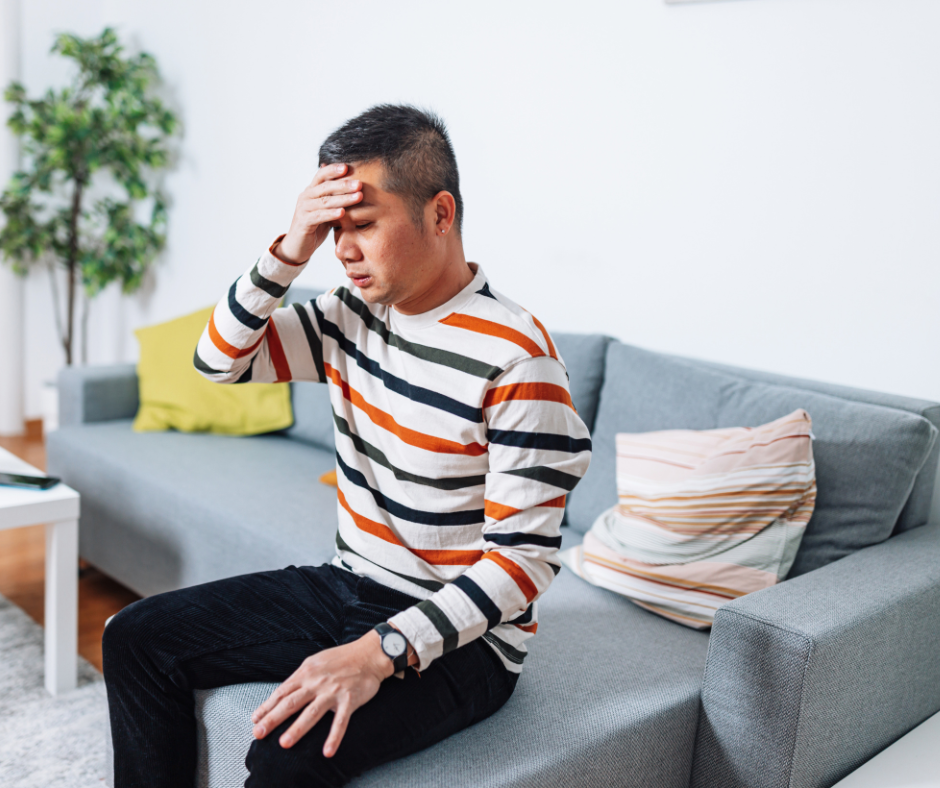Back pain is a common issue that affects many people, often leading to discomfort and a decrease in quality of life. However, when back pain is accompanied by dizziness, it can be particularly concerning. The combination of these symptoms may leave you wondering whether they are related and what might be causing them. In this blog, we will explore the possible connection between back pain and dizziness, as well as potential causes and treatments.
Understanding the Relationship Between Back Pain and Dizziness
While back pain and dizziness may seem unrelated at first glance, there are several ways in which these symptoms can be connected. The spine, particularly the cervical (neck) region, plays a crucial role in maintaining balance and stability. Any issues in this area, such as tension, misalignment, or nerve compression, can potentially lead to dizziness.
Common Causes of Back Pain-Related Dizziness
Here are some of the common reasons why back pain might be associated with dizziness:
1. Cervical Spine Issues
Problems in the cervical spine, such as a herniated disc, muscle tension, or cervical spondylosis, can lead to dizziness. The neck is closely linked to the vestibular system, which controls balance. If the nerves or blood vessels in the neck are compressed or irritated, it can disrupt this system, causing dizziness.
2. Poor Posture
Poor posture, particularly when sitting or standing for long periods, can lead to both back pain and dizziness. Slouching or hunching over can strain the muscles in the back and neck, leading to tension headaches and dizziness. Over time, this poor posture can also affect blood flow to the brain, contributing to light-headedness.
3. Muscle Tension
Muscle tension, particularly in the upper back and neck, can lead to both pain and dizziness. When muscles are tight, they can restrict blood flow and nerve function, leading to symptoms such as headaches, dizziness, and a feeling of imbalance.
4. Vestibular Dysfunction
In some cases, back pain can lead to vestibular dysfunction, where the inner ear, which helps control balance, is affected. This can occur due to tension in the neck muscles or issues with the cervical spine, leading to dizziness, vertigo, and balance problems.
5. Stress and Anxiety
Stress and anxiety can contribute to both back pain and dizziness. When you are stressed, your muscles tense up, especially in the back and neck, which can lead to pain. Additionally, anxiety can cause hyperventilation or changes in blood pressure, both of which can lead to dizziness.
When to Seek Medical Advice
If you are experiencing back pain along with dizziness, it is important to consult a healthcare professional, especially if the symptoms are severe or persistent. While in many cases, the cause may be related to muscle tension or posture, it is crucial to rule out more serious conditions such as:
- Cervical vertebral issues
- Inner ear problems
- Neurological conditions
- Cardiovascular issues
Seeking professional advice from an osteopath or other healthcare provider can help identify the root cause of your symptoms and provide appropriate treatment.
How Can Osteopathy Help?
Osteopathy can be an effective treatment option for managing both back pain and dizziness. By focusing on the musculoskeletal system, osteopaths can help address issues such as muscle tension, spinal misalignment, and poor posture, which may be contributing to your symptoms.
1. Spinal Manipulation and Mobilisation
Osteopaths use gentle manipulation techniques to improve spinal alignment and reduce nerve compression. This can help relieve pain in the back and neck, and potentially reduce dizziness by restoring proper function to the vestibular system.
2. Soft Tissue Therapy
Osteopaths may use soft tissue techniques to release muscle tension and improve blood flow. This can help alleviate muscle tension that may be contributing to both back pain and dizziness.
3. Postural Advice and Exercises
Osteopaths often provide advice on posture and exercises to strengthen the muscles that support the spine. By improving posture and core strength, you can reduce the strain on your back and neck, potentially reducing dizziness as well.
Self-Care Tips for Managing Back Pain and Dizziness
In addition to seeking professional help, there are several self-care strategies you can use to manage your symptoms:
- Practice good posture: Be mindful of your posture, especially when sitting for long periods. Use ergonomic furniture if possible, and take regular breaks to stretch.
- Stay active: Engage in regular, low-impact exercise to keep your muscles strong and flexible.
- Manage stress: Incorporate stress management techniques such as deep breathing, meditation, or yoga into your routine.
- Stay hydrated: Dehydration can contribute to dizziness, so make sure to drink plenty of water throughout the day.
Conclusion
While back pain and dizziness can be distressing, understanding the potential connection between these symptoms can help you take appropriate action. If you are experiencing both back pain and dizziness, it’s important to consult with a healthcare professional to determine the underlying cause and receive the appropriate treatment. Osteopathy can play a key role in managing these symptoms, helping you find relief and regain your quality of life.
If you would like to book and appointment with us, you can do so by clicking here.





